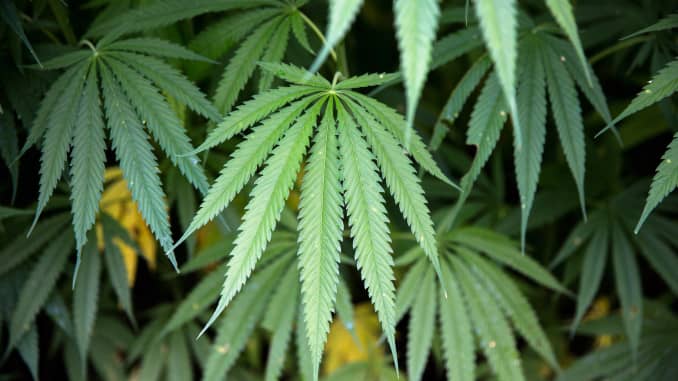Life before Legalization
Living in a western-culture that has embraced cannabis
consumption is quite different from the days of
the substance being illegal, with people that grew up in the 2000s and
early-to-mid 2010s remembering their communities shunning the substance and
preaching the consequences of using. Despite the substance being legal in only
parts of the western hemisphere, the traction of the substance is felt on this
part of the world and likely down the road, seeing a full decriminalization of
the substance across the entire western hemisphere. With all the positive
movements toward accepting and using the substance, society is less attentive
to the consequences of using the substance, and these is a reversal to what had
been seen before in Canada and parts of the United States before
decriminalization. Even though the substance is on an all-time high
(Hehe….Haha), people should still be aware of the consequences associated with
cannabis use.
The Power of Cannabis
The cannabis industry is relatively new, and the literature about
the substance has only gotten its feet wet. The need for more research is dire
as consumption increases, so investigating variables of consumption can further
knowledge about cannabis and provide evidence for its effects, both positive
and negative. Kardash et al. (2020), studied the role of personality in
response to THC consumption, with mice as their test-subjects in the study.
Their research suggested that submissive mice are more averse to the substance while
intoxicated with heavy doses in unfamiliar situations, but dominant mice are not averse to the drug across situations that are unfamiliar but not overly stressful, regardless of dose. It is important to note that the researchers also had results that suggest heavy cannabis use increases depression-like symptoms during very stressful situations for dominant mice, so personality has its limits and there is a threshold of cannabis consumption before relaxation is compromised. To Simplify these findings in other words, the results suggest that normally anxious people are probably not going to benefit from heavy
use of the substance in stressful or unfamiliar situations, differentiating from
confident individuals who are likely not phased by the drug in unfamiliar situations but also likely to hit a cannabis threshold where heavy cannabis use becomes a disadvantage during highly stressful situations. Further expanding on those
findings, the researchers dug deeper and had results that linked sustained heavy cannabis
use to increased cortisol levels (which is another word for stress
hormones) across all users of cannabis, no matter their personality type. This
is scary because high cortisol levels can have serious medical implications mentally and
physical down the road if heavy use persists.
Some might be wondering, “Why should I be scared if these
methods and results were conducted on mice? Surely those tiny rodents, who are
very different from humans cannot provide evidence to the temple that is the
human body”. To clarify for those who might not be aware, mice share 97.5% of
their DNA with humans, considering they are the 2nd most genetically
related creature to humans after Chimps, mice have a lot in common with humans
biologically, although it may not look it.
What does this mean for you
If these results were to show a relatively accurate generalization of humans and their response to cannabis, it is important to note that regardless of personality, heavy THC consumption is a dangerous thing. People should be aware that no one is immune from the consequences of heavy cannabis consumption and that your personality may only have so much influence on the THC response before the amount consumed outweighs personality factors. Extra caution must be taken by everyone who uses or considers using the substance. In this blog, we will consider heavy dosage cannabis consumption as someone who frequently uses large amounts of cannabis.
If these results were to show a relatively accurate generalization of humans and their response to cannabis, it is important to note that regardless of personality, heavy THC consumption is a dangerous thing. People should be aware that no one is immune from the consequences of heavy cannabis consumption and that your personality may only have so much influence on the THC response before the amount consumed outweighs personality factors. Extra caution must be taken by everyone who uses or considers using the substance. In this blog, we will consider heavy dosage cannabis consumption as someone who frequently uses large amounts of cannabis.
Canada's Role in the Cannabis Industry and Future Considerations
The first year of cannabis legalization in Canada yielded $1
Billion, and this early market growth is advancing with society towards
accepting the substance. With this growth, it is important to remind society of
the risks associated with the substance. We as a society need to address safety measures when
implementing and maintaining cannabis culture, providing care for those who are
using the drug recreationally but also those who are relying on it for other
aspects of their life. It is critical to protect the mental, physical, and
emotional aspects of one’s health, and by educating about heavy cannabis use
and its affect on cortisol levels, this can be achieved. Educating about
the long-term negative consequences of cannabis induced high cortisol levels is vital in
maintaining strong community health. Hopefully government entities in Canada
use measures to educate similar to those used for alcohol, tobacco, and
gambling industries, as those have been very informative.
The ultimate goal as a community would be to have an
education campaign on cannabis use that preaches moderation. This means that it
is acceptable to use the substance but use it in moderation or with appropriate
amounts so that consumption is not dangerously heavy. To educate Canadians
about moderation, the goal would be to seek a medium between using and not
using, those who like using and those who utterly oppose, and to find a balance
that enacts more benefits than negatives from consumption. Society should still
embrace the substance, as it has many benefits, but still have a reminder of
what occurs when moderation is neglected.
Since cannabis is a new industry, the Canadian government
would surely be interested in sharing research on cannabis use. The campaign
could be useful in garnering healthy use procedures but promote moderation so
that users are not feeling guilty of using. By preaching moderation, this may
hopefully end some stigmas around substances and mental health, developing a
medium between using and not using so that members of society can use in a non-judgmental society but have knowledge about safe use of the substance. In
providing Canadians with knowledge about safe cannabis use, Canadians will have
a greater insight into deciding if to use. It’s good to remember that cannabis
does have some positive benefits which should also be conveyed to Canadians, with
the substance filling roles in modern medicine and leisurely wellness.
Eventually, this slow process of decriminalization in North
America that has shadowed an already long prohibition will be uplifted, which
was the case for alcohol in the 1920s. Once that period arrives, ideally the research
and education on the substance will surely be enough to see promote healthy consumption
for a majority of society.
George-Cosh, D. (2019, December 11). Pot sales in Canada fall short of forecasts in first year of legalization - BNN Bloomberg. Retrieved from https://www.bnnbloomberg.ca/pot-sales-in-canada-fall-short-of-forecasts-in-first-year-of-legalization-1.1361025



No comments:
Post a Comment